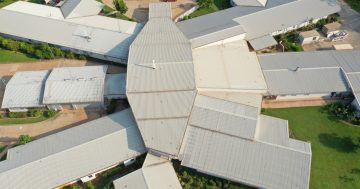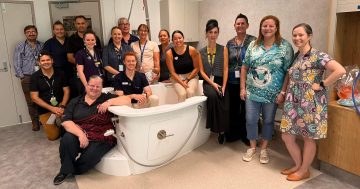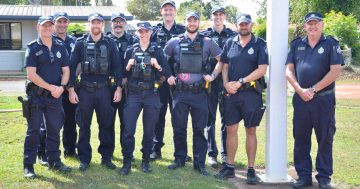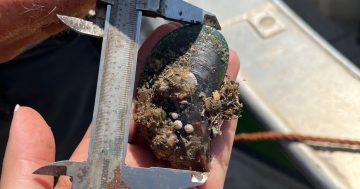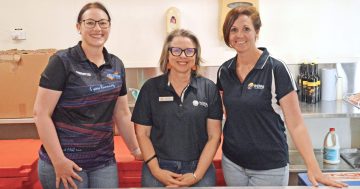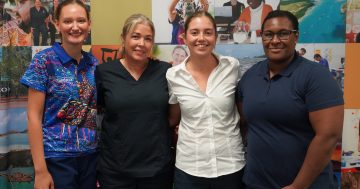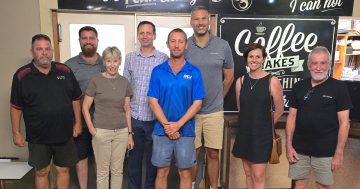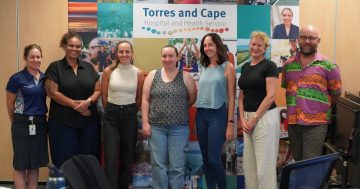
Western Cape women celebrate the courage to speak up about healthcare in their remote communities during the inaugural Western CapeHER forum last week. Photo: Brock Cook.
A Napranum mother is hoping the health futures of her three daughters are a little brighter after an event bringing remote women’s health to the forefront was held last week.
Traditional Owner Pearl Matthew was one of many community women who voiced their healthcare experiences at the Western CapeHER Women’s Health Forum on 5-6 June.
The inaugural event, hosted by the University of Queensland (UQ), Queensland Health, and Aboriginal-owned business Embley Contracting, aimed to empower community members to share health priorities and highlight the challenges of women living on Cape York.
“The women’s health forum was really emotional for a lot of women that was out there struggling, and not getting support,” Ms Matthew said.
“I would love to see a lot more support and help out there with women’s health.
“As for me, showing a role model to my family, to my daughters, it’s very important.”
She said the forum was emotional because there were not many opportunities for remote women to truly be heard and learn in the health space.
“[There was] support that I never heard about, but it was really good hearing about it from other speakers out there, it was really lovely,” she said.
“We was around the tables today, and we just give our feedback, what we think about health in the community.
“It would be lovely if we can have more of this again, maybe within six months, where the whole community can stand up and talk.”
UQ researcher and Weipa local Minnie King, who was one of the forum leaders, said it had been moving to see everyone’s passion and willingness to share.
“I think the turnout has been absolutely exceptional,” she told Cape York Weekly at the event.
“The feeling and the energy in the room has been about people from the grassroots, people who choose to live here, people whose families and ancestors live here, meeting people from all over the state … and really just coming together, and being able to sit down and share their minds and views in this beautiful, respectful, collaborative way.”
The forum comes after Ms King, along with fellow researchers from UQ, came to Cape York almost a decade ago to learn more about remote women’s health.
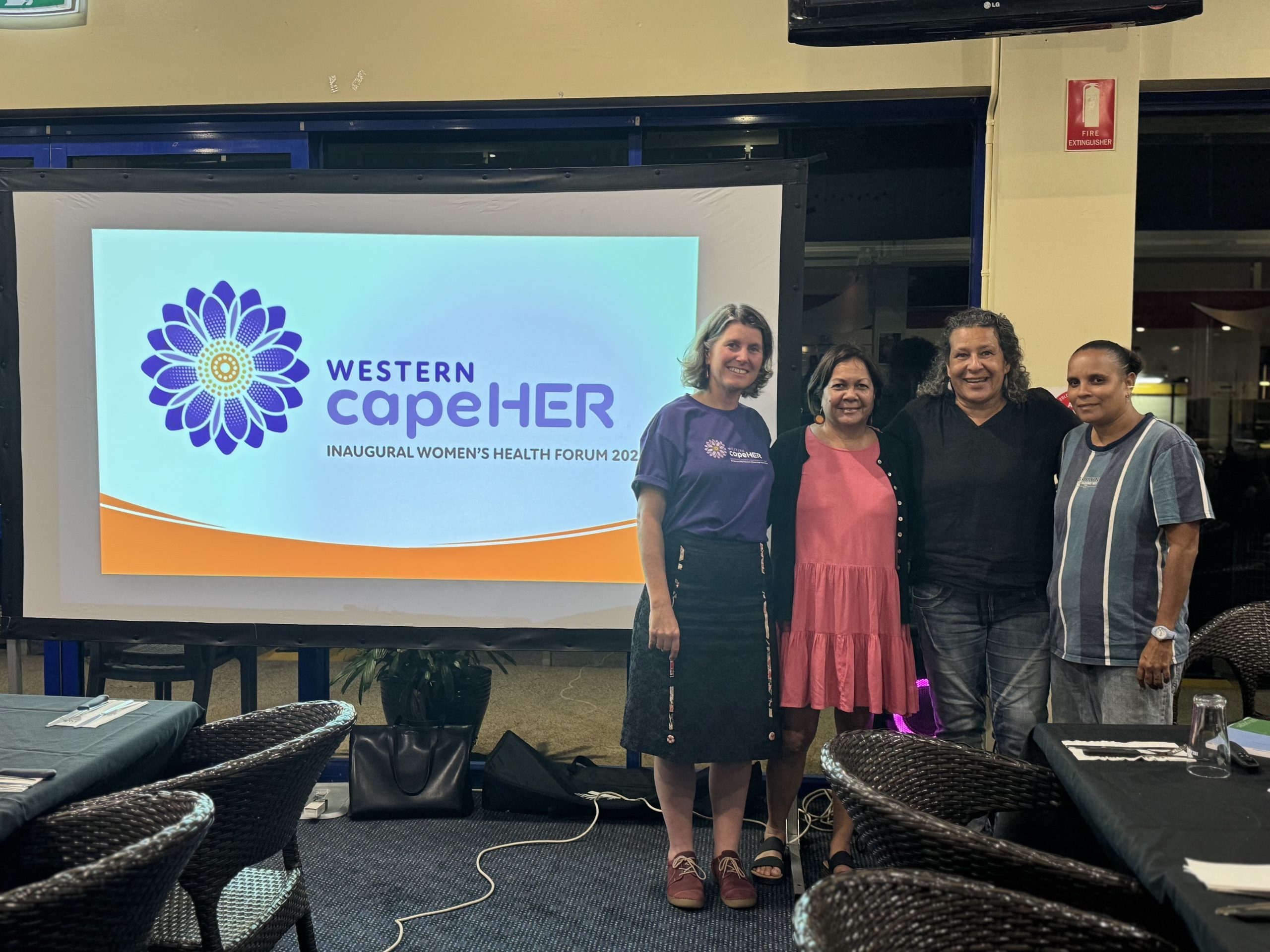
UUQ researchers Associate Professor Nina Lansbury, Sandra Creamer and Minnie King stand alongside Napranum Traditional Owner Pearl Matthew at the inaugural Western CapeHER Women’s Health Forum. Photo: Chisa Hasegawa.
This research led to a culturally appropriate menstrual and puberty teaching guide, which was launched at Western Cape College in November 2024.
“We knew from eight years ago, there was this gap in health services and healthcare in terms of cultural competency, and how people were feeling and being treated,” Ms King said.
“What better way to do it than not only community-led, but place-based.
“This has been at the grassroots community level, and said, we have an issue on our hands, the health of women in remote western Cape is at stake here, and we want the experts to come to us and have a two-way conversation.”
Over two intensive days, Ms King said local women and subject matter experts communicated on 18 topics.
“Eighteen topics is phenomenal, but what we get a sense of feeling is that there needs to be a policy shift, both at the state level through Queensland Health, and then also at the federal level from the health minister,” she said.
“The health system wasn’t built for us, it was built around us, and we haven’t been part of that process.”
Weipa endorsed midwife Lorraine Woods said she had been pleasantly surprised by how open attendees had been, and believed the women’s vulnerability was vital in breaking the cycle of shame in health.
“I’m actually amazed how much we’ve talked about with different things, because usually it’s a taboo,” she said.
“I didn’t think that the women of the communities would be willing to talk about it, but I think it’s important, and I’m hoping if we can start talking about these things, hopefully we might break that cycle, and I feel that we might start closing the gap a little bit.”
Ms Woods said she hoped a platform like the forum would help women to build the confidence they needed to advocate for themselves and their health.
“For example, endometriosis is a painful condition, and people suffer in silence because they’re too scared to talk to people,” she said.
“Our women have to get the courage to be confident to speak up, talk to people and explain their issues to the doctors, because we know it’s not made up, it’s a real fact.
“We also need to work as a unit to work out how we can make it better for the women, for the communities, and educate them to have a voice, educate them to be independent and talk about things.”
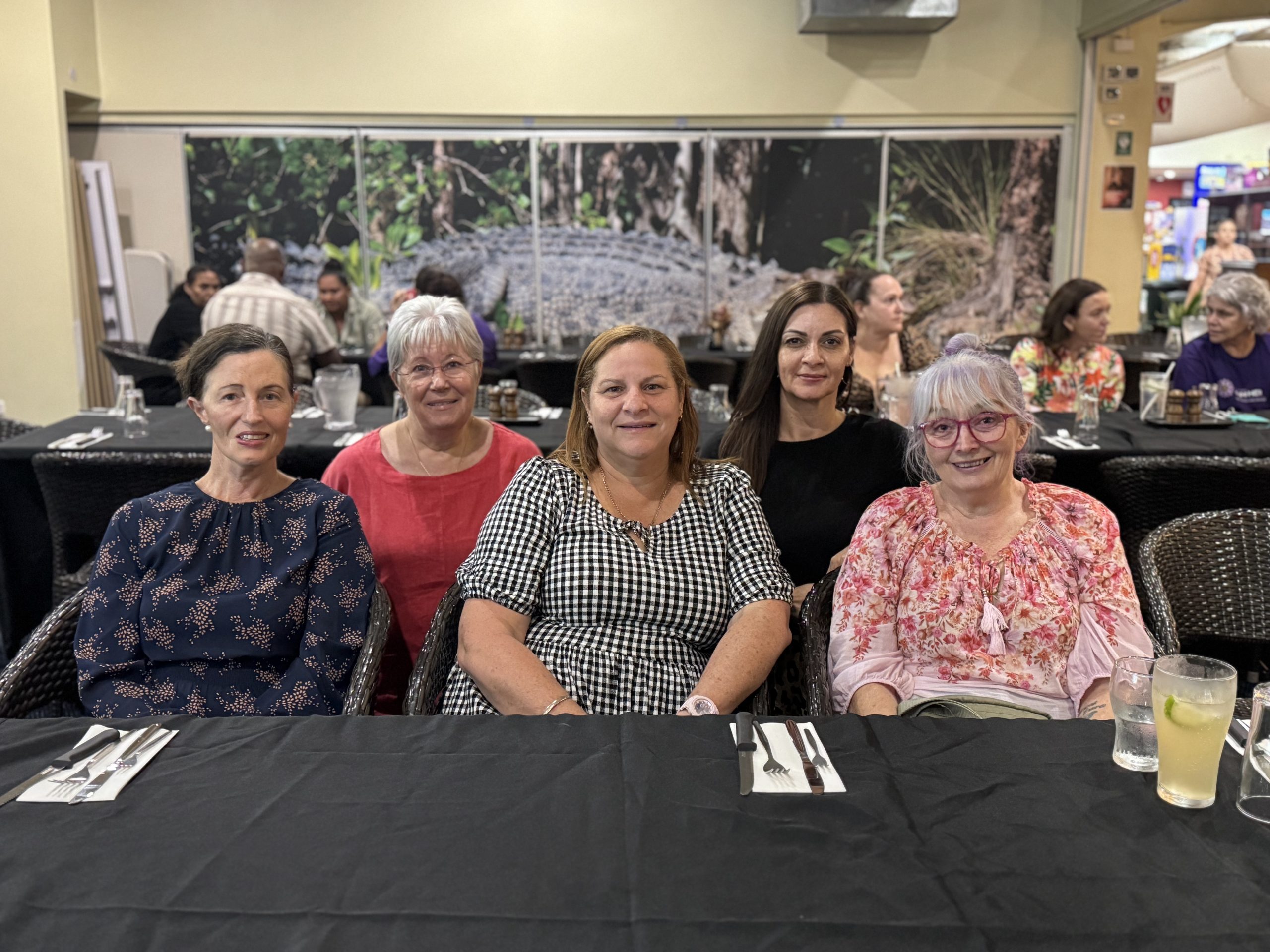
The Weipa Hospital midwifery group practice team, pictured at the forum dinner, discussed women’s health issues in the context of remote service delivery. Photo: Chisa Hasegawa.
Original Article published by Chisa Hasegawa on Cape York Weekly.


